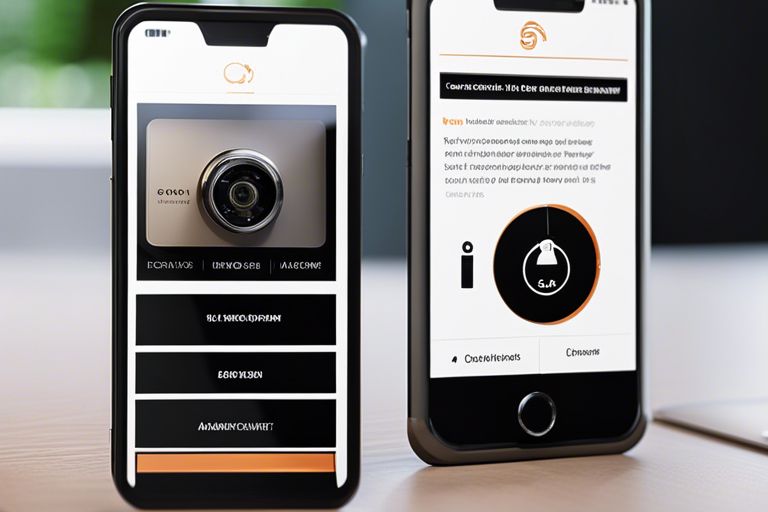Just imagine the peace of mind knowing your confidential legal documents and client information are protected from cyber threats. As a legal professional, your data security is paramount. In this article, we will explore five top security tools meticulously curated to safeguard your sensitive information. By incorporating these tools into your workflow, you can ensure a higher level of protection for you and your clients.
Key Takeaways:
- Secure Communication: Encrypted messaging apps like Signal and Wickr provide a secure way for legal professionals to communicate sensitive information.
- Password Management: Tools like LastPass and 1Password can help legal professionals securely store and manage passwords to prevent unauthorized access.
- Virtual Private Networks (VPNs): VPNs like ExpressVPN and NordVPN can help protect data when legal professionals are accessing files or communicating over public Wi-Fi networks.
The Importance of Security in the Legal Profession
A legal professional like yourself deals with sensitive information on a daily basis, making security a critical aspect of your work. Ensuring the confidentiality and protection of client data is not just necessary for maintaining trust and reputation, but it is also a legal obligation. The consequences of a security breach in the legal industry can be severe, leading to loss of clients, lawsuits, and damage to your firm’s credibility.
Confidentiality and Data Protection
One of the key pillars of the legal profession is maintaining confidentiality and data protection. As a legal professional, you handle privileged information that must be safeguarded at all costs. Breaches of confidentiality can result in ethical violations, malpractice suits, and irreparable harm to your client relationships. Implementing robust security measures is crucial in upholding the trust your clients have placed in you.
Cybersecurity Threats in the Legal Industry
Confidentiality is paramount in the legal industry due to the nature of the information you handle. Cybersecurity threats such as hacking, ransomware, and data breaches pose significant risks to law firms. Hackers target legal professionals to access sensitive client data for various malicious purposes, including identity theft and financial fraud. It is imperative to stay vigilant and invest in cybersecurity tools to protect your clients and your practice.
Another challenge faced by legal professionals is the rise of social engineering attacks, where cybercriminals manipulate individuals into divulging confidential information. These sophisticated tactics can deceive even the most cautious professionals and compromise the security of your firm. Educating yourself and your staff about cybersecurity best practices is necessary in mitigating these evolving threats.
Top 5 Security Tools for Legal Professionals
While cybersecurity threats continue to evolve, it is crucial for legal professionals to stay one step ahead in protecting sensitive information. Here are the top 5 security tools that can help you safeguard your data and communication.
Tool #1: Encryption Software
Security in the legal field is paramount, and encryption software plays a vital role in ensuring your documents and emails are secure from unauthorized access. By using encryption tools, you can protect confidential information by encoding it in a way that only authorized parties can decipher.
Tool #2: Two-Factor Authentication
Tool
Implementing Two-Factor Authentication (2FA) adds an extra layer of security to your accounts by requiring not only a password and username but also something that only you have access to, such as a code sent to your phone. This additional step significantly reduces the risk of unauthorized access even if your password is compromised.
Legal
Tool #3: Secure Communication Platforms
Software
In the legal profession, secure communication platforms are vital for exchanging sensitive documents and information securely. These platforms often offer end-to-end encryption, ensuring that only the sender and the intended recipient can access the messages and files shared.
This
Tool #4: Data Loss Prevention Systems
Secure
Data Loss Prevention (DLP) systems help legal professionals prevent the accidental or intentional leakage of sensitive data. These systems monitor and control the flow of data within the organization, preventing unauthorized transfer or access to confidential information.
Understanding
Tool #5: Incident Response Planning Tools
Planning
Having Incident Response Planning Tools in place is vital for legal professionals to quickly and effectively respond to cybersecurity incidents. These tools help you outline a structured approach to identify, manage, and mitigate security breaches, minimizing the impact on your organization.
Tools
By incorporating these top security tools into your practice, you can enhance the protection of your confidential data and communication, ensuring that you maintain the trust and confidence of your clients and colleagues.
Features to Look for in Security Tools
After reading about the 5 cybersecurity tools that can protect your firm from hackers, you are now equipped with valuable insights into selecting the right security tools for your legal practice. When choosing security tools, there are necessary features you should consider to ensure they meet the unique requirements of legal professionals. Here are some key features that you should look for:
Compliance with Industry Regulations
For legal professionals, compliance with industry regulations such as GDPR, HIPAA, or CCPA is non-negotiable. When opting for security tools, ensure they have robust security features that align with these regulations to protect sensitive client information. Look for tools that offer encryption, access controls, audit trails, and other compliance-related features to keep your data secure and in line with legal standards.
User-Friendly Interface
Industry experts agree that having a user-friendly interface is crucial for security tools used by legal professionals. When dealing with sensitive legal information, you need a tool that is easy to navigate and understand. Look for features like customizable dashboards, intuitive workflows, and user-friendly settings that make it simple for you and your team to use the tool effectively.
To ensure maximum efficiency and productivity, choose security tools that offer a seamless user experience, allowing you to focus on your legal work without being bogged down by complex security measures. A user-friendly interface will not only enhance your cybersecurity efforts but also improve your overall workflow and user satisfaction within your legal practice.
Scalability and Customization
Tools that offer scalability and customization options are necessary for legal professionals dealing with growing caseloads and evolving cybersecurity threats. Ensure the security tools you choose can scale with your practice, accommodating an increasing volume of data and users without compromising performance. Look for customizable features that allow you to tailor the tool to your specific needs, adapting to the unique requirements of your legal practice.
Customization options also enable you to fine-tune security settings, create personalized access levels, and integrate the tool seamlessly into your existing workflows. By choosing scalable and customizable security tools, you can stay ahead of cyber threats while adapting to the changing demands of your legal practice.
Integration with Existing Systems
For legal professionals, seamless integration with existing systems is a crucial feature when selecting security tools. Ensure that the tools you choose can easily integrate with your current software solutions, such as case management systems, document repositories, or communication platforms. Integration simplifies the user experience, enhances productivity, and ensures that your security measures work harmoniously with your existing workflows.
It’s important to select security tools that offer seamless integration capabilities to streamline your operations and provide a cohesive security environment across all your legal practice systems. By choosing tools that integrate seamlessly with your existing systems, you can enhance your overall cybersecurity posture while maintaining operational efficiency.
Benefits of Implementing Security Tools
Now, implementing security tools can provide numerous advantages for legal professionals. By utilizing these tools, you can enhance your data protection, improve client trust, reduce the risk of cyber attacks, and increase productivity. To investigate deeper into the benefits, consider exploring The 10 Best Cybersecurity Services for Law Firms.
Enhanced Data Protection
Tools designed to fortify your cybersecurity measures play a crucial role in safeguarding sensitive information within your legal practice. These security tools can encrypt data, establish secure access controls, detect and mitigate internal and external threats, and ensure compliance with data protection regulations. By investing in robust security solutions, you can bolster your defenses against increasingly sophisticated cyber threats.
Improved Client Trust
Tools that focus on enhancing data security not only protect your firm but also instill confidence in your clients. When clients entrust you with their sensitive information, demonstrating a commitment to safeguarding their data can significantly enhance their trust in your practice. By integrating security tools into your operations, you show clients that their privacy and confidentiality are a top priority for your firm.
This increased level of trust can strengthen client relationships, improve client retention, and attract new business opportunities based on your reputation for maintaining the highest standards of data security.
Reduced Risk of Cyber Attacks
An important aspect of implementing security tools is the mitigation of cyber threats that could compromise your firm’s operations and reputation. By proactively deploying specialized tools such as firewalls, intrusion detection systems, and threat intelligence platforms, you can significantly reduce the risk of falling victim to cyber attacks. These tools enable you to identify vulnerabilities, monitor for suspicious activities, and respond promptly to potential security breaches.
Implementing a comprehensive security strategy that incorporates the latest tools and technologies can empower your firm to stay ahead of cyber threats and safeguard your critical data assets.
Increased Productivity
Protection of your IT infrastructure through security tools not only enhances your defense against cyber threats but also contributes to increased productivity within your firm. By minimizing the disruptions caused by security incidents, such as data breaches or malware attacks, your team can focus more on core legal tasks and client service. Additionally, streamlined security processes and automated threat responses provided by security tools can optimize workflow efficiency and boost overall productivity.
Security tools can free up your time and resources, allowing you to concentrate on serving your clients effectively and advancing your legal practice with confidence.
Challenges of Implementing Security Tools
Many legal professionals face challenges when implementing security tools in their practice. To enhance your understanding of the obstacles you might encounter, take a look at the Top 10 Legal Tech Tools to Boost Efficiency and Attract Clients for insights.
Budget Constraints
The implementation of security tools may be hindered by budget constraints within your legal practice. You might find it challenging to allocate funds for high-quality security solutions while balancing other imperative expenses. In such cases, you may need to evaluate cost-effective options or seek out solutions that offer flexible pricing plans to accommodate your budget constraints.
User Adoption and Training
Budget and time constraints can also impact the training and adoption of security tools by your team. It’s crucial to ensure that your staff members are adequately trained on the proper use of these tools to maximize their effectiveness. Investing in comprehensive training programs and providing ongoing support can help employees feel more confident in using these security solutions effectively.
User adoption and training are imperative aspects of implementing security tools in your legal practice. It’s not just about purchasing the latest technology but also about ensuring that your team understands how to utilize these tools to their full potential. Regular training sessions, workshops, and resources can help your staff become more proficient in leveraging security tools to protect sensitive legal data.
Integration with Legacy Systems
Budgetary considerations may also affect the integration of security tools with your existing legacy systems. Upgrading systems to ensure compatibility with new security tools can incur additional expenses. However, overlooking this integration can leave gaps in your security infrastructure, potentially exposing your legal practice to cybersecurity risks.
With the increasing complexity of cybersecurity threats, integrating security tools with your legacy systems is crucial for maintaining a robust defense against potential breaches. You may need to work closely with IT professionals to find cost-effective solutions that seamlessly integrate with your current systems while enhancing your overall security posture.
Balancing Security with Accessibility
Balancing security with accessibility poses a significant challenge when implementing security tools in your legal practice. While robust security measures are imperative for protecting sensitive client information, they should not hinder the accessibility and efficiency of your operations. Striking the right balance between security and accessibility is crucial to ensure that your team can work effectively without compromising on data protection.
With the rising importance of data security in the legal sector, finding ways to balance security requirements with the accessibility needs of your team is paramount. By considering user workflows, client requirements, and regulatory obligations, you can tailor your security measures to align with your practice’s specific needs. Collaborating with security experts and legal technology providers can help you strike the right balance and safeguard your practice against cyber threats.
Best Practices for Legal Professionals
Regular Security Audits
Not conducting regular security audits can leave your law firm vulnerable to cyber threats. It is vital to schedule periodic audits to assess the effectiveness of your security measures and identify any potential weaknesses in your systems.
Employee Education and Awareness
Professionals educating your staff on cybersecurity best practices is crucial in ensuring that they understand the risks and know how to prevent security breaches. Regular training sessions can help increase awareness and create a culture of security within your organization.
To further strengthen your security posture, consider conducting simulated phishing attacks to test your employees’ responses and provide additional training where necessary. Ultimately, your employees play a significant role in safeguarding sensitive data and should be well-informed about potential threats.
Incident Response Planning
Best practice dictates that you have a well-defined incident response plan in place to swiftly and effectively respond to security breaches. This plan should outline the steps to take in the event of a breach, assign roles and responsibilities, and establish communication channels to mitigate the impact of the incident.
Legal professionals must regularly review and update their incident response plan to reflect changes in the cybersecurity landscape and ensure that all team members are familiar with the procedures. Being prepared to handle security incidents can help minimize damage and protect your clients’ sensitive information.
Continuous Monitoring and Updates
Audits keeping a close eye on your systems and networks through continuous monitoring can help detect suspicious activities and potential security breaches in real-time. Implementing automated monitoring tools can provide valuable insights into your network traffic and alert you to any unusual behavior promptly.
Awareness regularly updating your software, applications, and security systems is vital for staying ahead of evolving cyber threats. By ensuring that your systems are up to date with the latest security patches and updates, you can reduce the likelihood of falling victim to cyberattacks.
Conclusion
With these considerations, you now have a better understanding of the top 5 security tools that can greatly benefit legal professionals. By incorporating these tools into your workflow, you can protect sensitive client information, maintain confidentiality, and ensure compliance with data security regulations.
Recall, investing in robust security measures not only protects your firm and your clients but also enhances your reputation as a trustworthy legal professional. Stay informed about the latest cybersecurity trends and continuously update your security protocols to stay ahead of potential threats in the ever-evolving digital landscape.
FAQ
Q: What are the top 5 security tools for legal professionals?
A: The top 5 security tools for legal professionals are encryption software, secure communication tools, password managers, antivirus software, and file encryption tools.
Q: Why do legal professionals need encryption software?
A: Encryption software is crucial for legal professionals to protect sensitive client information and confidential documents from unauthorized access. It ensures that data is securely encrypted, making it unreadable to anyone without the proper decryption key.
Q: How can password managers help legal professionals enhance security?
A: Password managers help legal professionals create and store complex, unique passwords for different accounts and applications. By generating strong passwords and securely storing them in an encrypted vault, password managers can help prevent unauthorized access to sensitive information.






